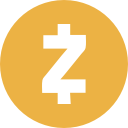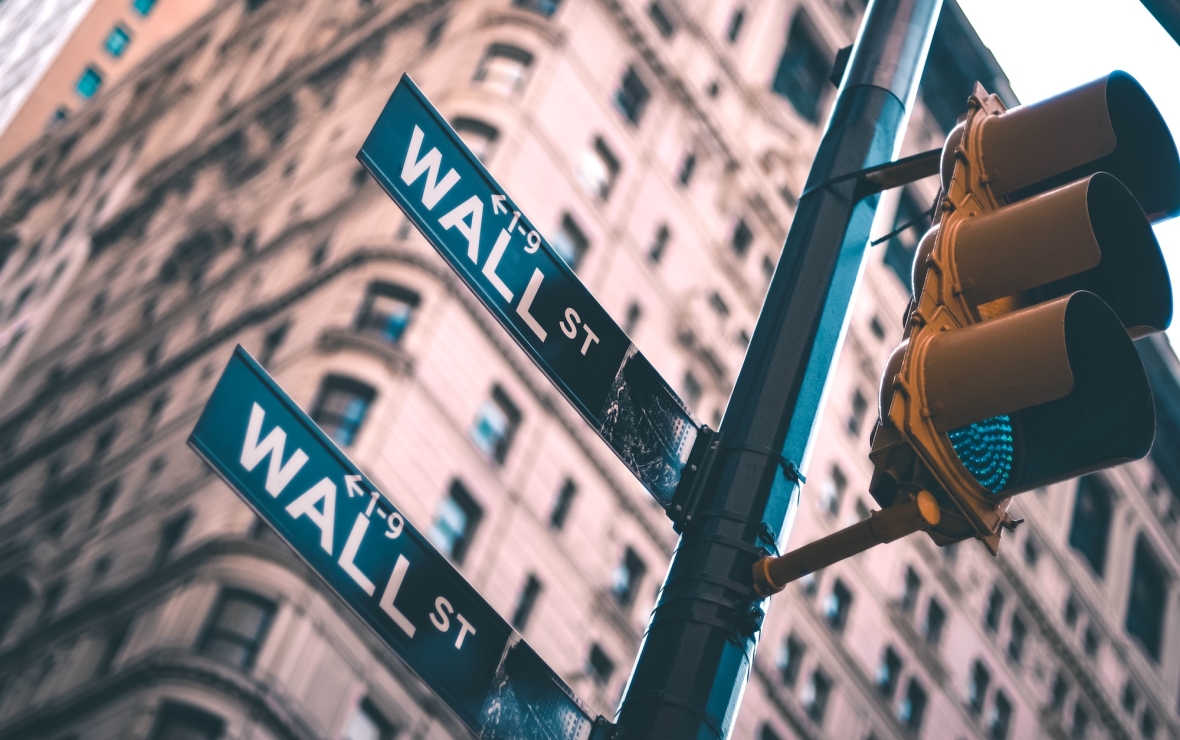Coinbase
How to Buy Cardano
Good news! You can buy Cardano on Coinbase's centralized exchange. We've included detailed instructions to make it easier for you to buy Cardano.
Read more


Cardano (ADA) is a blockchain platform built on a proof-of-stake consensus protocol (called Ouroboros) that validates transactions without high energy costs. Development on Cardano uses the Haskell programming language, which is described as enabling Cardano “to pursue evidence-based development for unparalleled security and stability.” The blockchain’s native token, ADA, is named after the 19th century mathematician, Ada Lovelace.
Launched in 2017, Cardano (ADA) is a proof-of-stake blockchain platform that strives to bring positive global change by enabling innovators to develop decentralized applications and smart contracts. Cardano is named after the 16th-century Italian polymath Gerolamo Cardano, while its native token, ADA, is named after the 19th-century mathematician Ada Lovelace. Cardano is one of the biggest cryptocurrencies by market cap as of 2023 and has been designed to be a next-gen evolution of the Ethereum idea — with a blockchain that is flexible, sustainable, and scalable. The Cardano blockchain is divided into two separate layers: the Cardano Settlement Layer (CSL) and the Cardano Computing Layer (CCL). The CSL contains the ledger of accounts and balances (and is where the transactions are validated by the Ouroboros consensus mechanism). The CCL layer is where all the computations for apps running on the blockchain are executed — via the operations of smart contracts. The idea of splitting the blockchain into two layers is to help the Cardano network to process as many as a million transactions a second. The ADA token allows holders to participate in the operation of the network, including voting on proposed changes to the software. Cardano's technology is developed through a process of peer-reviewed research, ensuring the durability and stability of the blockchain. Unlike Ethereum-based tokens, Cardano native tokens aren't created via smart contracts. Instead, they run on the same architecture as the ADA cryptocurrency itself. According to the nonprofit Cardano Foundation, this makes Cardano native assets "first-class citizens" on the blockchain. Their native architecture can theoretically make these tokens more secure and reduce the fees associated with transactions.
Cardano operates on a unique proof-of-stake consensus mechanism known as Ouroboros, which is less energy-intensive than the proof-of-work algorithm used by other blockchains. This mechanism allows Cardano to be secure and sustainable while using substantially less power. Cardano's blockchain is layered, which means it separates the ledger of account values from the reason why values are moved from one account to the other. This separation is intended to make smart contracts safer. Cardano's goal is to be the most environmentally sustainable blockchain platform. It uses a unique proof-of-stake consensus mechanism called Ouroboros, as opposed to the energy-intensive proof-of-work system currently used by Bitcoin.
Cardano's technology has been leveraged in a variety of compelling use cases. For instance, agricultural companies have used Cardano to track fresh produce from field to fork, ensuring transparency and accountability in the food supply chain. Additionally, educational institutions have used the platform to store educational credentials in a tamper-proof way, while retailers have used it to clamp down on counterfeit goods. With the launch of the Alonzo hard fork, Cardano now supports smart contracts, opening up a myriad of potential applications in various sectors.
Cardano was launched in September 2017 by Charles Hoskinson, one of the co-founders of the Ethereum network, and aims to be a third-generation blockchain (or blockchain 3.0) project — building on top of the technology pioneered by Bitcoin (first gen) and Ethereum (second gen). Hoskinson's involvement in the cryptocurrency industry dates back to 2011, and he has been a prominent figure in the space ever since. Cardano's development has been marked by a series of upgrades, each named after a famous figure in history. The Shelley upgrade, for instance, aimed to make the blockchain more decentralized, while the Alonzo hard fork introduced smart contract functionality to the platform. Cardano's development continues to be guided by rigorous academic research and a commitment to creating a more secure, transparent, and fair society. The Ouroboros consensus mechanism is based on peer-reviewed research by a team of computer scientists and cryptographers from the University of Edinburgh, Tokyo University, and other institutions. Their goal was to build a decentralized network that could validate transactions in a scalable, secure way — while ensuring that the Cardano platform would be as energy-efficient as possible.
Decentralized cryptocurrency networks need to make sure that all transactions are legitimate without the oversight of a central authority like a bank. To accomplish this, they use a "consensus mechanism" to verify transactions. The original crypto consensus mechanism, called proof of work, was first popularized by Bitcoin mining. Proof of work requires a large amount of processing power contributed by virtual "miners" around the world. Rather than using a network of miners, proof of stake uses a network of invested participants called validators. The network selects a winner based on the amount of ADA each validator has in the pool and the length of time they've had it there — rewarding the most invested participants. Once the winner has validated the latest block of transactions, other validators can attest that the block is accurate. When a threshold number of attestations have been made, the network updates the blockchain. All participating validators receive a reward in ADA, which is distributed by the network in proportion to each validator's stake. Becoming a validator is a major responsibility, but interested parties can also earn ADA rewards by "delegating" some of their crypto to a staking pool run by someone else. On March 1, 2021, the Cardano blockchain introduced the ability to create native tokens. Like Ethereum tokens — which can include things like NFTs or stablecoins — Cardano native assets can be created and distributed on the blockchain and are able to interact with smart contracts (once smart contracts are enabled on the platform).
Much like the Ethereum blockchain's native cryptocurrency is ETH, the Cardano blockchain's native cryptocurrency is ADA — which can be bought or sold via exchanges like Coinbase. Today, ADA can be used to store value (perhaps as part of your crypto portfolio), to send and receive payments, and for staking and paying transaction fees on the Cardano network.
You can hold ADA on Coinbase, in Coinbase Wallet, and using a number of crypto exchanges and wallets.
Earn free crypto after making your first purchase. Terms apply.

Sum of median estimated savings and rewards earned, per user in 2021 across multiple Coinbase programs (excluding sweepstakes). This amount includes fee waivers from Coinbase One (excluding the subscription cost), rewards from Coinbase Card, and staking rewards.
Market cap
€15.0B
Volume (24h)
€478.4M
Circulating supply
35.7B ADA
Typical hold time
294 days
Popularity
#10
All time high
€2.86
Price change (1h)
-1.04%
Price change (1d)
-1.49%
Price change (1w)
-5.29%
Price change (2w)
-2.43%
Price change (1m)
-4.69%
Price change (1y)
+27.77%
A selection of conversions from different assets to top cryptocurrencies.
A selection of conversions for different assets and currencies.

VARA - GHS
Vara - Ghanaian Cedi

ETC - GGP
Ethereum Classic - Guernsey Pound

EOS - RWF
EOS - Rwandan Franc

OSMO - RUB
Osmosis - Russian Ruble

SEI - SBD
Sei - Solomon Islands Dollar

AXL - DKK
Axelar - Danish Krone

CGLD - DZD
Celo - Algerian Dinar

TNSR - MUR
Tensor - Mauritian Rupee

JTO - KYD
Jito - Cayman Islands Dollar

HBAR - XCD
Hedera - East Caribbean Dollar

ZEC - VND
Zcash - Vietnamese Đồng

SUI - MKD
SUI - Macedonian Denar
People who viewed Cardano tend to also view the following cryptocurrencies.
Assets with the biggest change in unique page views on coinbase.com over the past 24 hours.
A selection of cryptocurrencies in the top 50 by market cap.
Of all the assets on Coinbase, these 12 are the closest to Cardano in market cap.
Here is a selection of spot and futures markets that people watch
A selection of other relevant cryptocurrencies
30,775 unique individuals are talking about Cardano and it is ranked #13 in most mentions and activity from collected posts. In the last 24 hours, across all social media platforms, Cardano has an average sentiment score of 3.2 out of 5. Finally, Cardano is becoming more newsworthy, with 16 news articles published about Cardano. This is a 11.76% increase in news volume compared to yesterday.
On Twitter, people are mostly neutral about Cardano. There were 21.25% of tweets with bullish sentiment compared to 6.51% of tweets with a bearish sentiment about Cardano. 72.24% of tweets were neutral about Cardano. These sentiments are based on 25390 tweets.
On Reddit, Cardano was mentioned in 1160 Reddit posts and there were 2092 comments about Cardano. On average, there were more upvotes compared to downvotes on Reddit posts and more upvotes compared to downvotes on Reddit comments.
Powered by LunarCrush
Contributors
30,775 people
Posts
19,644 posts
Dominance
0.31%
Volume rank
#13
Average Sentiment
3.2 out of 5
News Articles
16
Tweet Count
25,390 people
Sentiment
21.25%
Bullish
72.24%
Neutral
6.51%
Bearish
Posts
1,160
Comments
2,092
Post Score
4,048
Comment Score
4,331
Conversion Table
ADA/CAD (Canadian Dollar)
CA$0.62
ADA/JPY (Japanese Yen)
¥71.55
ADA/INR (Indian Rupee)
₹37.88
ADA/BRL (Real)
R$2.35
ADA/EUR (Euro)
€0.42
ADA/NGN (Nigerian Naira)
NGN 672.22
ADA/KRW (South Korean Won)
₩622.78
Coinbase
How to Buy Cardano
Good news! You can buy Cardano on Coinbase's centralized exchange. We've included detailed instructions to make it easier for you to buy Cardano.
Read more

Coinbase
How to Stake Cardano
Cardano is currently available to stake on Coinbase’s centralized exchange, subject to locations where staking is allowed.
Read more


Whale street: How big-money institutional investors are preparing for the next bull run
COINBASE BYTES • NOV 08, 2023
Learn how we collect your information by visiting our Privacy Policy.
The price of Cardano has decreased by 1.04% in the last hour and decreased by 1.49% in the past 24 hours. Cardano’s price has also fallen by 5.29% in the past week. The current price is €0.42 per ADA with a 24-hour trading volume of €478.41M. Currently, Cardano is valued at 85.31% below its all time high of €2.86. This all-time high was the highest price paid for Cardano since its launch.
The current circulating supply of Cardano is 35,689,205,676.466 ADA which means that Cardano has as total market cap of 35,689,205,676.466.
We update our Cardano to EUR currency in real-time. Get the live price of Cardano on Coinbase.
The current market cap of Cardano is €15.02B. A high market cap implies that the asset is highly valued by the market.
The all-time high of Cardano is €2.86. This all-time high is highest price paid for Cardano since it was launched.
Over the last 24 hours, the trading volume of Cardano is €478.41M.
Assets that have a similar market cap to Cardano include Tether, BNB, Solana, and many others. To see a full list, see our comparable market cap assets.
The current circulating supply of Cardano is 36 billion.
The median time that Coinbase customers hold Cardano before selling it or sending it to another account or address is 294 days.
Cardano ranks 5 among tradable assets on Coinbase. Popularity is currently based on relative market cap.
Currently, 98% of Coinbase users are buying Cardano. In other words, 98% of Coinbase customers have increased their net position in Cardano over the past 24 hours through trading.
Yes, Cardano is currently available on Coinbase’s centralized exchange. For more detailed instructions, check out our helpful how to buy Cardano guide.
Certain content has been prepared by third parties not affiliated with Coinbase Inc. or any of its affiliates and Coinbase is not responsible for such content. Coinbase is not liable for any errors or delays in content, or for any actions taken in reliance on any content. Information is provided for informational purposes only and is not investment advice. This is not a recommendation to buy or sell a particular digital asset or to employ a particular investment strategy. Coinbase makes no representation on the accuracy, suitability, or validity of any information provided or for a particular asset. Prices shown are for illustrative purposes only. Actual cryptocurrency prices and associated stats may vary. Data presented may reflect assets traded on Coinbase’s exchange and select other cryptocurrency exchanges.